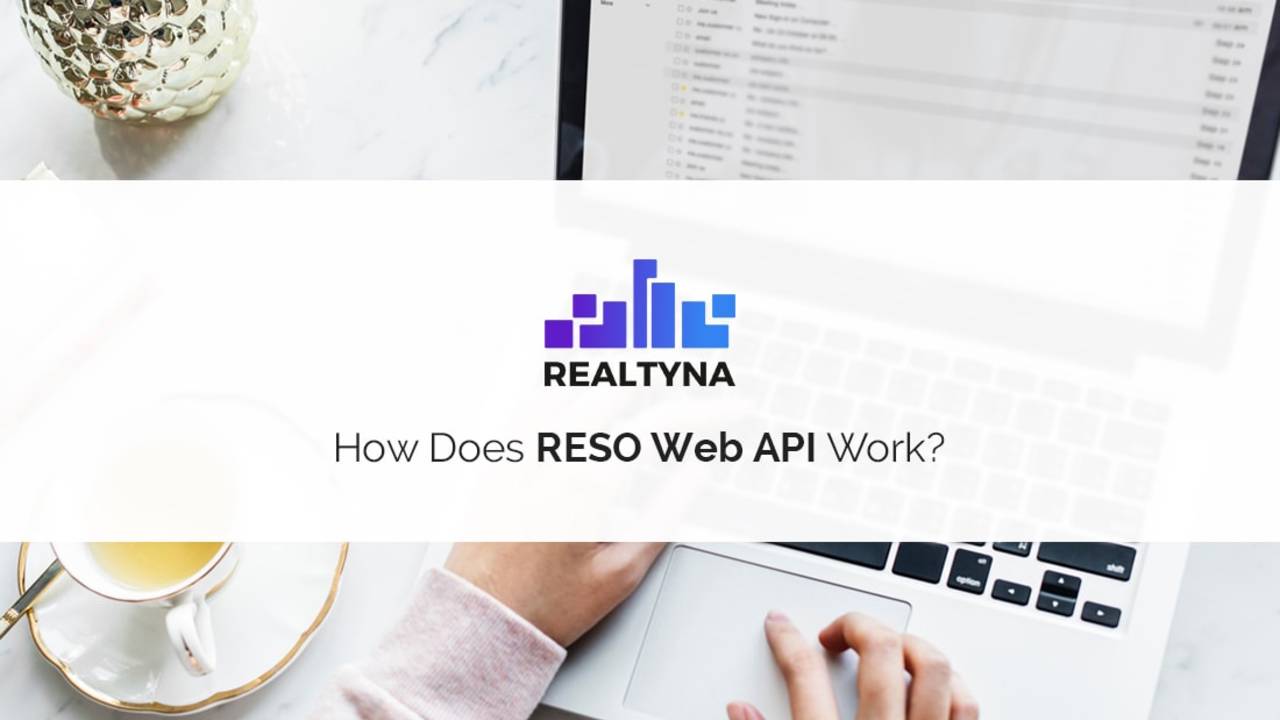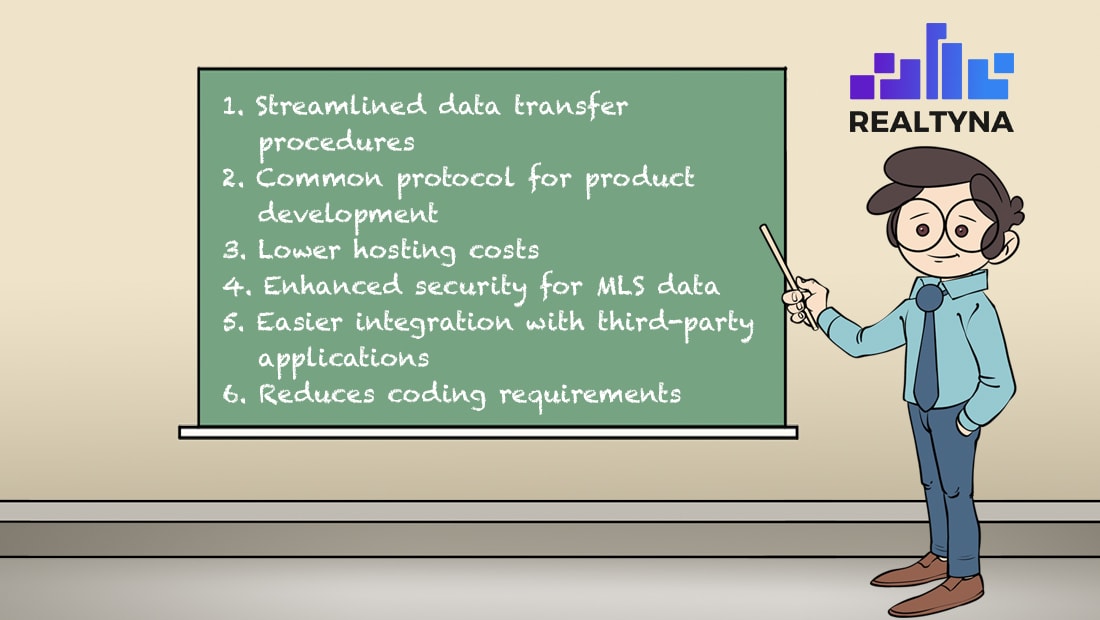RESO Web API works by providing a standardized interface to MLS databases, allowing IDX applications and websites to query listings in real time and return them in a user’s search results.
Still unsure of what that means? Don’t worry. We’ll unpack it piece by piece.
Let’s start with the basics.
What is RESO Web API?
RESO Web API is a standard designed to streamline data transfers between MLSs and agent websites to facilitate IDX and the development of real estate software. This is important because the real estate industry is decentralized.
Instead of having a single, national MLS, the U.S. real estate industry is broken into 1 700+ small and medium MLS. This can cause headaches for developers seeking to serve clients in multiple markets.
The Real Estate Standards Organization (RESO) has been working to streamline data practices between MLS for more than a decade though its implementation of RETS and RESO Data Dictionary.
RESO Web API is simply the latest evolution of these standards designed to provide new levels of coordination in the industry and spurs new product development.
How Is RESO Web API Different from RETS?
RESO Web API is different from RETS because it is an application programming interface rather than an XML feed, which allows for direct calls to the MLS in response to a user search.
There is no question that RETS transformed the real estate industry. But it came with a tradeoff—storage. RETS works by keeping a database of property listings on an agent’s web servers and updating that database incrementally with new and modified listings from the MLS.
It’s a system that works. But it’s no longer the most efficient way to go about a data transfer.
LUKE’S TIP:
What Are the Advantages of RESO Web API?
The advantages of RESO Web API are:
1. Streamlined data transfer procedures
2. Common protocol for product development
3. Lower hosting costs
4. Enhanced security for MLS data
5. Easier integration with third-party applications
6. Reduces coding requirements
So How Specifically Does RESO Web API Work?
Now that you have some background, we’ll get into the details of how it works.
RESO Web API works by providing a streamlined access point to an MLS database. Where RETS required developers to duplicate the MLS database on local servers and update it incrementally, RESO Web API packages MLS access into a single component.
This decouples the MLS database from websites and other applications, while retaining the ability for users to query the data in real time.
RESO Web API also takes advantage of a more open approach to data real estate transfers by using a Representational State Transfer (REST) architecture. REST has community of tens of thousands of developers world wide, and it should help drive real estate technology development deeper into mobile and social media applications.
To interact with the data, RESO Web API uses the Open Data, a widely used global technology protocol. This provides a level of consistency with other technologies and frees developers from having to learn and write unique code.
Where the Google Maps API severed as the catalyst for mobile mapping technology, RESO hopes its Web API serves as the catalyst for real estate technology.
So that’s how RESO Web API works. Did we forget something? Leave a note in the comments. For more check out What is the Difference Between RETS and VOW?




Comments(4)